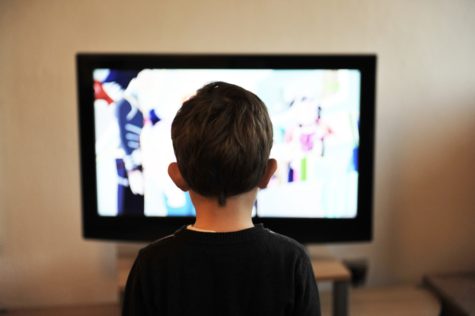AMES, Iowa — Put down the controller: Allowing your child to have a TV or video game console in their bedroom is asking for trouble, a new study finds.
Academics at Iowa State University used previous research to look at the effect that the location of entertainment devices had on the health and habits of children, finding that bedside devices enabled abuse, leading to poor health outcomes.

Children who had a television or console in their room spent less time reading, sleeping, or participating in other extracurricular activities, which resulted in a number of adverse outcomes, including a greater risk of obesity, poor grades, and video game addiction.
Participants, who were examined over a six-to-24-month-long period, also displayed greater aggression if they had a device in their room, as they were more likely to interact with violent shows or games.
“When most children turn on the TV alone in their bedroom, they’re probably not watching educational shows or playing educational games,” argues lead author Douglas Gentile, a professor of psychology, in a university news release. “Putting a TV in the bedroom gives children 24-hour access and privatizes it in a sense, so as a parent you monitor less and control their use of it less.”
Gentile says that easy access not only leads to increased engagement, particularly with less desirable media, but encourages kids to avoid more beneficial activities, such as reading.
The researchers note that the average screen time for adolescents has been steadily climbing, particularly with the ubiquity of digital devices, such as smartphones.
Some estimates say that the average child spends 60 hours a week in front of a screen.
In terms of TV and gaming console access, more than 40 percent of those aged 4 to 6 have a TV in their bedroom, while far more aged 8 and older have either or both.
Although it’s tough to remove a television or console from a kid’s room, it’s definitely worth having the conversation, says Gentile.
“It’s a lot easier for parents to never allow a TV in the bedroom than it is to take it out,” he adds.
After all, there is little to no correlation between having entertainment devices in the house and poor health markers: The problems arise when they’re placed in an adolescent’s bedroom.
“We know from decades of research on addiction that the number one predictor of addiction is access,” Gentile concludes. “You can’t be addicted to gambling if there’s no place to gamble. Access is certainly the pathway to a wide range of effects, both positive and negative.”
The study’s findings were published this week in the journal Developmental Psychology.

Comments
Comments are closed.